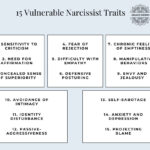Is Shadow Work Dangerous?
Is shadow work dangerous? This question didn’t cross my mind when I first delved into the realms of shadow work. Initially, it seemed like just another step on the journey toward self-discovery.
However, as I ventured deeper, I quickly realized the importance of this question. Despite facing unforeseen challenges during my shadow work practice, I don’t regret embarking on this path.
In fact, I believe it’s an essential journey for anyone seeking spiritual growth and a deeper understanding of themselves. Nonetheless, it’s crucial to acknowledge that shadow work can pose certain risks if not approached with care and guided support.
In this blog post, I aim to shed light on the potential dangers of navigating shadow work without the expertise of a professional Jungian analyst.
My goal isn’t to deter you from this transformative practice, but to ensure you embark on this journey safely, protecting your mental health and well-being every step of the way.
The Potential Risks of Shadow Work
Shadow work, a concept popularized by Carl Jung, involves delving into the darker, unexplored parts of our psyche. It’s about confronting repressed emotions, desires, and traits that we often deny or ignore.
While this journey can lead to profound personal growth and self-awareness, it’s not without its risks. Engaging with your shadow self can be unsettling, as it may feel like an external force is encroaching upon your being.
This sensation stems from illuminating and releasing repressed traumas and emotions. As these buried feelings surface, your body may react defensively, perceiving them as threats. This reaction triggers the nervous system, launching you into fight or flight mode.
Such intense emotional upheaval can manifest physically as anxiety, shaking, sweating, or even gastrointestinal distress. These symptoms are the body’s way of expelling the pent-up energy and emotions that have been subconsciously weighing you down, thereby lowering your vibrational frequency.
This process, though akin to a form of catharsis aimed at elevating your energetic state, can be terrifying without proper understanding and support.
Education on the nuances of shadow work and professional guidance become crucial, especially when encountering these overwhelming experiences. It’s important to recognize that individual responses to shadow work vary.
Some may navigate these tumultuous waters alone, while others, myself included, find solace and strength in seeking external support.
This journey is challenging, but there’s no shame in needing help. The key is to engage with this work and learn to integrate your shadow, processing difficult emotions in a way that fosters growth and self-acceptance.
Safeguarding Yourself During Shadow Work
Your journey of shadow work can begin with personal exploration through shadow work exercises. It’s essential to start this process mindfully, constantly checking in with yourself to gauge your responses.
If you find yourself grappling with overwhelming thoughts and emotions, it’s a sign to seek external support. Alternatively, you can consult with a professional before diving into shadow work prompts if you want to ensure that you feel safe and guided as you embark on this path. Remember, the approach you take depends greatly on your personal journey and needs.
Navigating the depths of shadow work requires not just courage but also prudence. To protect your mental and emotional well-being, it’s recommended that you establish self-boundaries.
Here are some steps to help you get started:
- Set limits on the time and emotional energy devoted to these exercises.
- Recognize when to step back and allow yourself space to process and heal.
- Create a safe physical and emotional environment for exploring your shadow self.
- Balance shadow work with activities that bring joy, serenity, and relaxation.
These steps help you maintain overall well-being as you delve into the intricate layers of your psyche.
The Therapeutic Value of Shadow Work Despite its Dangers
Despite the potential dangers and overwhelm associated with shadow work, its therapeutic value is immense. Embracing your shadow can lead to profound healing and personal growth.
This process allows you to confront and integrate aspects of yourself that have been ignored or suppressed, leading to a more authentic and whole version of yourself. By facing your inner darkness, you can uncover and resolve deep-seated emotional wounds and traumas, leading to greater emotional freedom and resilience.
Moreover, engaging in shadow work fosters a deeper understanding and acceptance of yourself, enhancing self-compassion and empathy towards yourself and others. It paves the way for transforming negative patterns and behaviors into conscious choices and actions.
This naturally contributes to improved relationships and a more fulfilling life. The journey of shadow work, while challenging, ultimately leads to a heightened sense of inner peace and harmony, as the previously conflicting parts of yourself become unified.
To recap, the healing benefits of embracing your shadow include:
- Leads to authentic self-expression
- Resolves deep-seated emotional wounds
- Enhances self-compassion and empathy
- Transforms negative patterns and behaviors
- Improves personal relationships
- Cultivates inner peace and harmony
Practical Tools and Techniques for Safe Shadow Work

Shadow work can be a transformative yet intense experience. Journaling and meditation are practical and powerful tools that you can use in as you embark on this inner journey. These techniques stand out as powerful practices that can anchor your shadow work.
Journaling offers a safe space for self-reflection and expression. It allows you to externalize thoughts and emotions, making it easier to confront and understand the deeper aspects of your psyche. Through writing, you can explore your shadow self in a safe space, gaining insights into hidden parts of your being.
Meditation, on the other hand, fosters mindfulness and presence. It helps you cultivate a non-reactive state of mind, enabling you to observe your thoughts and feelings without being overwhelmed by them. This practice can be particularly helpful in managing the intense emotions that often accompany shadow work, providing a sense of calm and centeredness.
To further support your shadow work journey, consider integrating the following additional practices:
- Mindful breathing: Helps regulate emotions and reduce anxiety.
- Creative expression: Utilizes art, music, or dance to release and explore subconscious emotions.
- Nature walks: Connects you with the grounding energy of nature, promoting clarity and peace.
- Body work: Somatic practices like yin yoga or tai chi enhance bodily awareness and release stored emotions.
- Support groups: Provides a community of like-minded individuals for shared experiences and validation.
- Professional therapy: Ensures a structured and guided approach to deep shadow work.
Addressing Concerns & Queries on the Dangers of Shadow Work
Addressing common concerns and queries is crucial in demystifying shadow work and guiding those interested in this transformative journey. Here are key points to consider:
Is shadow work dangerous?
With proper guidance and self-care, it can be a safe and transformative process that leads to a more authentic version of yourself. It aids in harmonizing your psyche and different parts of yourself, promoting a sense of wholeness.
Can anyone do shadow work?
It’s accessible to anyone who is ready for it. But it’s important to assess one’s emotional resilience and support system before diving in. Ideally, the journey should be undertaken with guidance from someone experienced in the field to navigate its complexities safely.
How often should I practice?
Listen to your intuition and emotional capacity, allowing them to guide the frequency of your practice. It’s crucial to balance deep introspection with periods of rest and integration to ensure emotional well-being.
Do I need a therapist?
Professional support can greatly enhance the experience, especially for deep-seated issues. A trained therapist in shadow work can provide a safe space for exploration, offer insights and coping strategies, and help navigate the emotional turbulence that may arise during the process.
What benefits can I expect?
Increased self-awareness, emotional healing, and personal growth are common outcomes. Engaging in shadow work can also lead to improved relationships, a stronger sense of personal integrity, and a deeper connection with one’s authentic self, fostering a more fulfilling and meaningful life.
Final Thoughts on: Is Shadow Work Dangerous?
Shadow work, a profound journey into the self, does carry its risks. Yet its potential for transformative healing is immense. The danger lies not in the practice itself but in navigating its depths without awareness or support.
In conclusion, shadow work is akin to a double-edged sword — it holds the power to heal and to challenge. My advice from my personal experience is to inform yourself, treat it with respect, set personal boundaries, and seek professional support when needed.
Remember, the journey of integrating your shadow is not about eliminating parts of yourself. It’s about embracing your entirety, darkness and light alike, cultivating love, compassion, and acceptance of oneself. This is essential if you want to live a more balanced and fulfilling existence.
For more insights on Carl Jung’s work, explore these related resources:
Carl Jung & Religion: Exploring Jung’s Perspective on God
Frequently Asked Questions on Is Shadow Work Dangerous?
People often avoid shadow work due to fear of confronting uncomfortable truths and emotions within themselves. The process demands vulnerability and introspection, which can be daunting and uncomfortable.
Shadow work can hurt because it involves facing and integrating repressed parts of ourselves, including painful memories and emotions, leading to emotional discomfort.
While shadow work involves confronting and integrating repressed aspects of oneself, it’s not solely trauma work. However, it can bring to light past traumas that may need addressing.
Shadow work is not evil; it’s a psychological process for personal growth. It involves acknowledging and integrating all parts of oneself, including those deemed negative, to achieve wholeness and balance.






